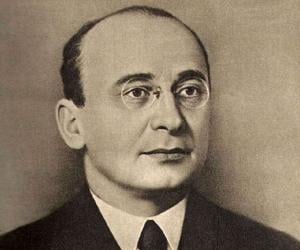Beria Lavrenty

Lavrenty Beria (b. March 29, 1899, Merkheuli, present-day Gulripshi Municipality – d. December 23, 1953, Moscow) was a Soviet politician, General Commissar of State Security (1941), Marshal of the Soviet Union (1945), member of the Communist Party (1917).
In 1919, he graduated from Azerbaijan Technical University and continued his studies at Baku Polytechnicum. During his studies, he joined Bolsheviks in Baku. After the establishment of the Soviet government in Azerbaijan (1920), he was involved in secret activities against the government of independent Georgia and he was imprisoned for it. He worked in the office of the Central Committee of the Communist Party of Azerbaijan. In 1921-1931, he held leading positions in the Joint State Political Directorates of Azerbaijan, Georgia and the Transcaucasian Socialist Federative Soviet Republic. In 1931-1938, he was the First Secretary of the Central Committee of the Communist Party of Georgia.
Beria became a member of the Central Committee of the Communist Party of the Soviet Union in 1934. In 1939, he became a candidate for membership of the Political Bureau of the Central Committee of the Communist Party of the Soviet Union, and in 1946‒1952, he became a full member. In 1938-1945, Beria was the head of the People's Commissariat for Internal Affairs (NKVD). During World War II, he was a member of the State Defense Committee of the USSR from July 1941, and from May 1944, he became the deputy chairman.
In March-June 1953, he was the first deputy chairman of the Council of Ministers of the Soviet Union. He was the deputy of the Supreme Soviet of the Soviet Union (I-III convocations). He coordinated the state program on the production and testing of nuclear weapon. He was awarded five Orders of Lenin, Order of Suvorov (1st class) and other orders and medals. Winner of the Stalin Prize (1949).
He actively participated in mass repressions. He is responsible for killing and illegal arrests of many prominent representatives of the Georgian society. After Stalin's death, a struggle for power began in the highest echelons of the government. Beria was defeated, arrested and executed.
By the decree of the Presidium of the Supreme Soviet of the Soviet Union of December 31, 1953, he was deprived of the highest military rank and all awards.


